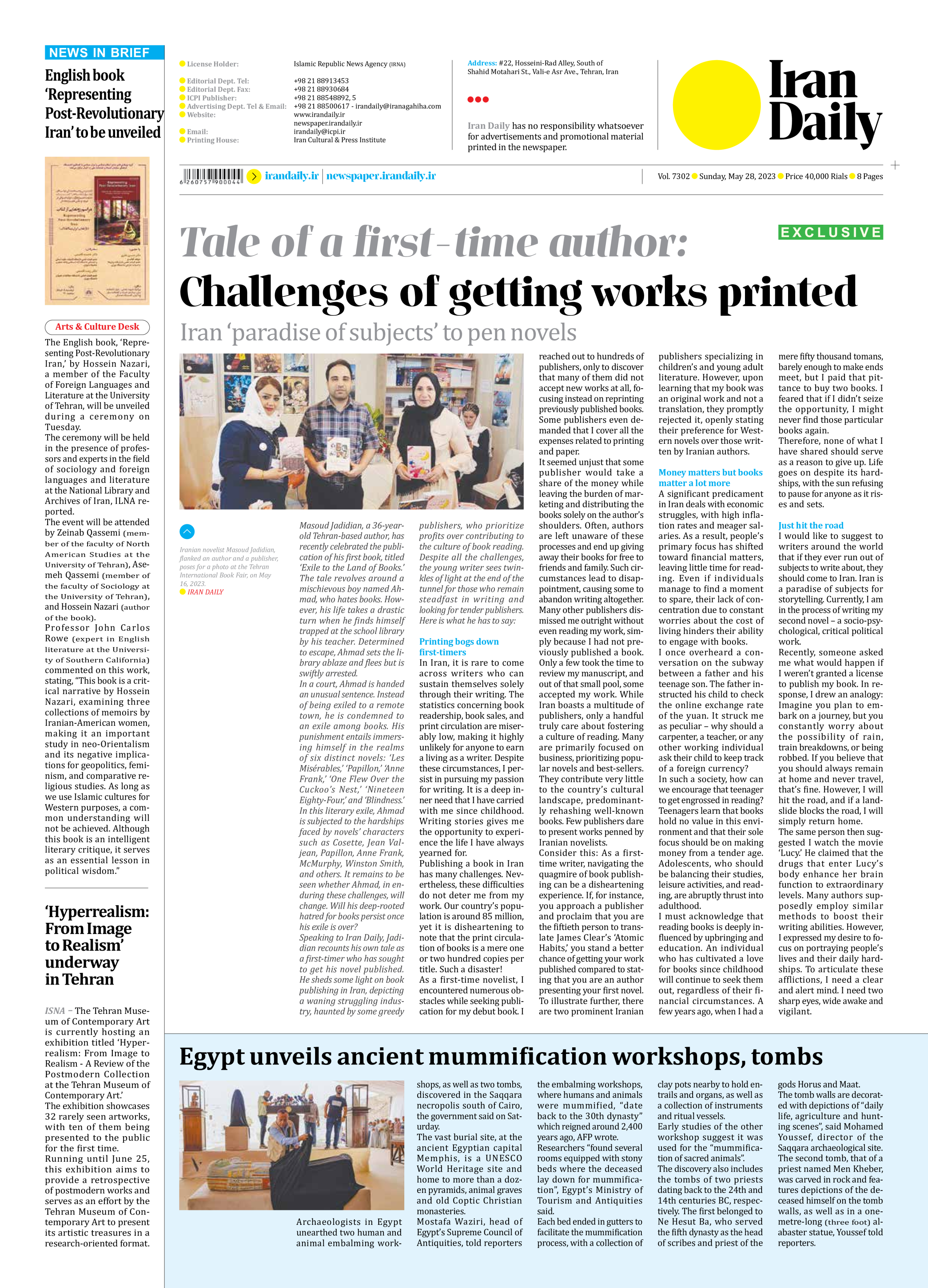
Egypt unveils ancient mummification workshops, tombs
Archaeologists in Egypt unearthed two human and animal embalming workshops, as well as two tombs, discovered in the Saqqara necropolis south of Cairo, the government said on Saturday.
The vast burial site, at the ancient Egyptian capital Memphis, is a UNESCO World Heritage site and home to more than a dozen pyramids, animal graves and old Coptic Christian monasteries.
Mostafa Waziri, head of Egypt’s Supreme Council of Antiquities, told reporters the embalming workshops, where humans and animals were mummified, “date back to the 30th dynasty” which reigned around 2,400 years ago, AFP wrote.
Researchers “found several rooms equipped with stony beds where the deceased lay down for mummification”, Egypt’s Ministry of Tourism and Antiquities said.
Each bed ended in gutters to facilitate the mummification process, with a collection of clay pots nearby to hold entrails and organs, as well as a collection of instruments and ritual vessels.
Early studies of the other workshop suggest it was used for the “mummification of sacred animals”.
The discovery also includes the tombs of two priests dating back to the 24th and 14th centuries BC, respectively. The first belonged to Ne Hesut Ba, who served the fifth dynasty as the head of scribes and priest of the gods Horus and Maat.
The tomb walls are decorated with depictions of “daily life, agriculture and hunting scenes”, said Mohamed Youssef, director of the Saqqara archaeological site.
The second tomb, that of a priest named Men Kheber, was carved in rock and features depictions of the deceased himself on the tomb walls, as well as in a one-metre-long (three foot) alabaster statue, Youssef told reporters.







